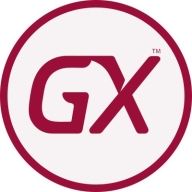

Pega Platform and GeneXus compete in the enterprise software category, specializing in automation and development. Pega holds the upper hand in enterprise-grade solutions, while GeneXus excels in rapid development.
Features: Pega Platform is strong in case management, BPM, and cloud technologies, aiding rapid integration and adaptation to enterprise needs. Its low-code environment, automation capabilities, and robust dashboards make it suitable for large businesses. GeneXus facilitates efficient system creation with fast database connections, model-driven architecture, and support for multiple language outputs.
Room for Improvement: Pega Platform could improve user experience customization, integration capabilities, and refine AI features. Its licensing costs are high, suggesting a need for more flexible pricing models. GeneXus requires enhancements in frontend interactions and better documentation, with a need to improve security features and resource consumption.
Ease of Deployment and Customer Service: Pega offers versatile deployment options across on-premises and various cloud environments, meeting large enterprises' diverse needs, with solid technical support but room for quicker response times. GeneXus primarily supports on-premises deployment with effective technical support despite occasional delays in unique issue resolution.
Pricing and ROI: Pega's licensing is costly for SMEs but offers significant ROI for enterprises focused on extensive case management and BPM solutions. Pricing varies with requirements and includes cloud and on-premises options. GeneXus is more cost-effective for smaller businesses due to multi-plan licenses and efficient development, presenting a valuable alternative.
The technical support from Pega is very low, rating a one or two out of ten.
I never needed support from the platform standpoint, but if additional features are required, we have regular meetings with the product team for feedback.
Pega's technical support team is very helpful.
Currently, big banking providers and insurance providers, even the members for healthcare payers, are using more than millions of operations on a daily or weekly basis.
With the recent development of AI agents in Pega Platform 24.2, the adoption is not heavy due to regulations around using external LLM by customers, especially regulated customers in BFSS and healthcare.
Pega introduced Constellation, which allows a user to build a more engaging visual experience.
My learning curve in robotics has been challenging.
Pega is priced higher than open-source options like Flowable but is suitable for large-scale industries like banking and insurance.
The pricing is expensive, and this is an issue.
From a licensing perspective, it is higher than the competition.
Management capabilities such as dashboards.
Pega Platform is excellent for enterprise-level solutions with integrations to entire systems, including case management, service orchestration, CRM, decision-making capabilities, digital process automation, and AI-driven functionalities.
| Product | Market Share (%) |
|---|---|
| Pega Platform | 5.1% |
| GeneXus | 0.8% |
| Other | 94.1% |


| Company Size | Count |
|---|---|
| Small Business | 12 |
| Large Enterprise | 2 |
| Company Size | Count |
|---|---|
| Small Business | 9 |
| Midsize Enterprise | 15 |
| Large Enterprise | 69 |
What is GeneXus? GeneXus™ is the best Low-Code Platform that you don't know yet.
It's a Software Development Platform that simplifies and automates the tasks of creating and evolving enterprise applications and multi-channel user-experiences. Great Advantages:
- Higher productivity, with automatic maintenance & evolution
- Multi-Experience, we continuously create new code generators
- Agile, incremental approach, with fully functional prototypes
- Easier to learn, one single language to cover all technologies
- Future-proof, we've been around for 30 years, evolving for you
Key Differentiators against the competition:
- No runtime fees, we charge by developer
- Best theoretical framework, which allows us to evolve
- Best coverage in the market: Most technologies, most languages, most markets and industries
- We run on-premise or on the cloud
- Multiple starting points depending on the type of company you work in, with products for Students, Startups, ISVs, Corporate Development, and SAP technologies
GeneXus uses Artificial Intelligence techniques to create software, enabling truly incremental development of apps, providing a low-code, future-proof development platform for the leading execution platforms and languages, and the most popular DBMS.
Pega Platform provides flexible business process management with a focus on rapid application development and automation through a low-code approach, enhancing efficiency across sectors.
Pega Platform is renowned for its ability to streamline operations with robust automation features, including robotic process automation and decision-making capabilities. Its intuitive interface and workflow management contribute to a reputation for enhancing business processes. Although users face challenges with integration limitations and high licensing costs, they benefit from rapid deployment and efficient process adaptations. The unified architecture reduces complexity, while case management and integration services support digital transformations in sectors such as banking, insurance, and healthcare.
What are the key features of Pega Platform?
What benefits and ROI should users expect?
In industries like insurance, banking, healthcare, and government, Pega Platform is implemented to automate diverse workflows, supporting initiatives from claims processing to customer onboarding. Enterprises use Pega for case management and digital transformations, valuing its out-of-the-box integrations and real-time reporting capabilities to boost operational automation and enhance customer experiences.
We monitor all Low-Code Development Platforms reviews to prevent fraudulent reviews and keep review quality high. We do not post reviews by company employees or direct competitors. We validate each review for authenticity via cross-reference with LinkedIn, and personal follow-up with the reviewer when necessary.